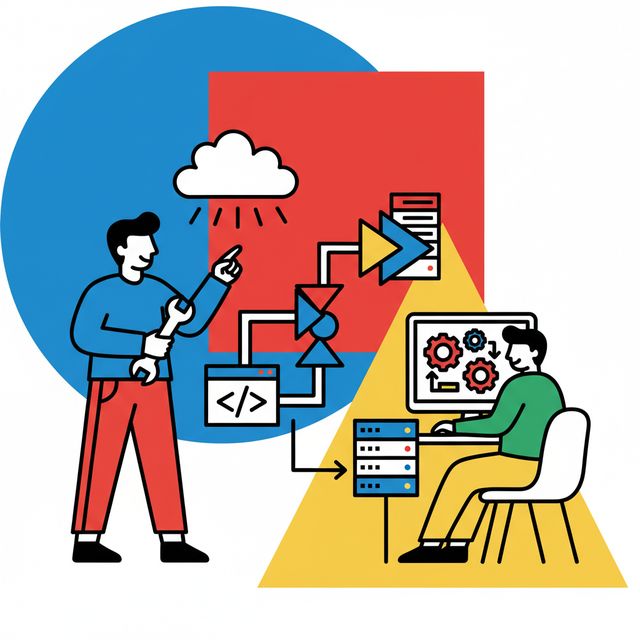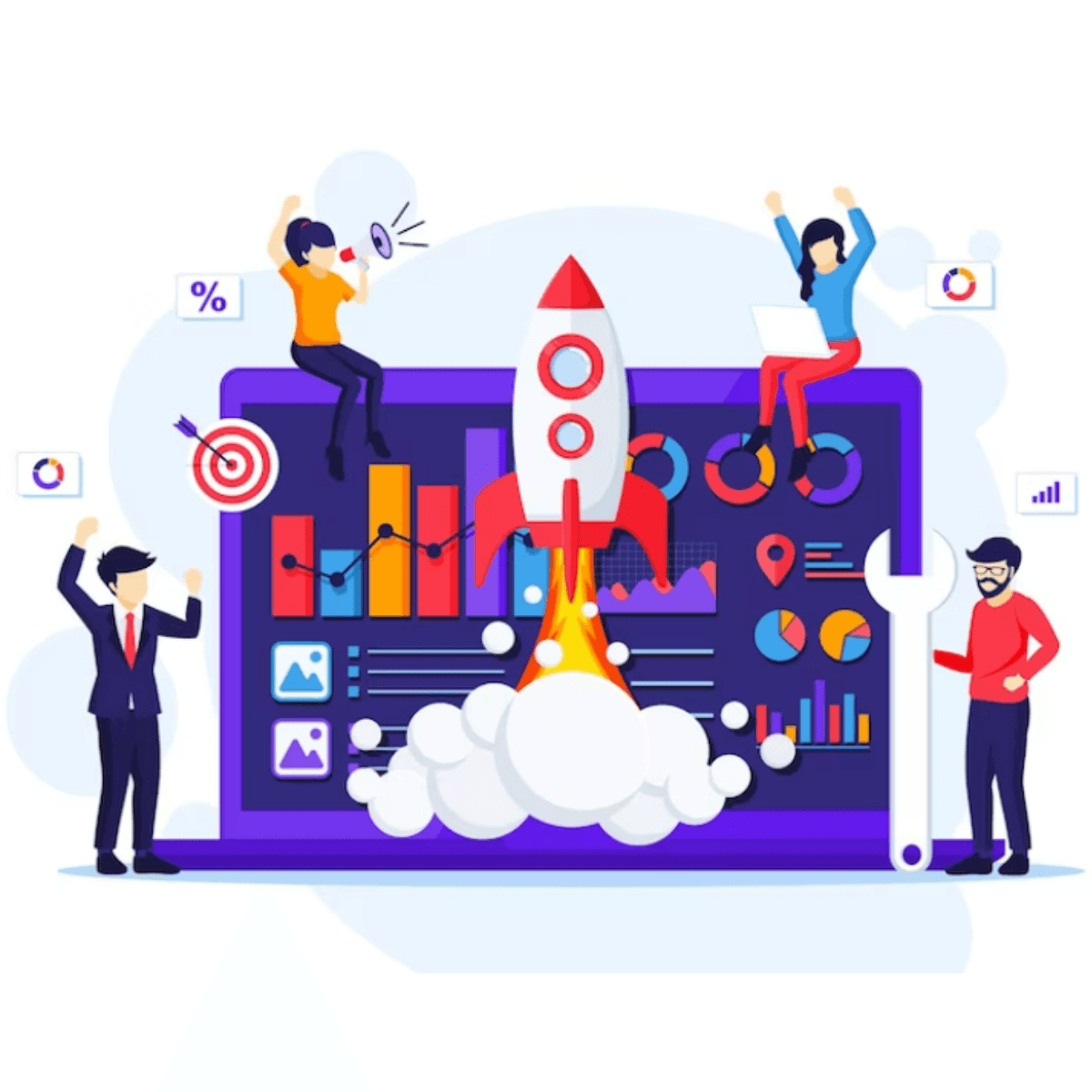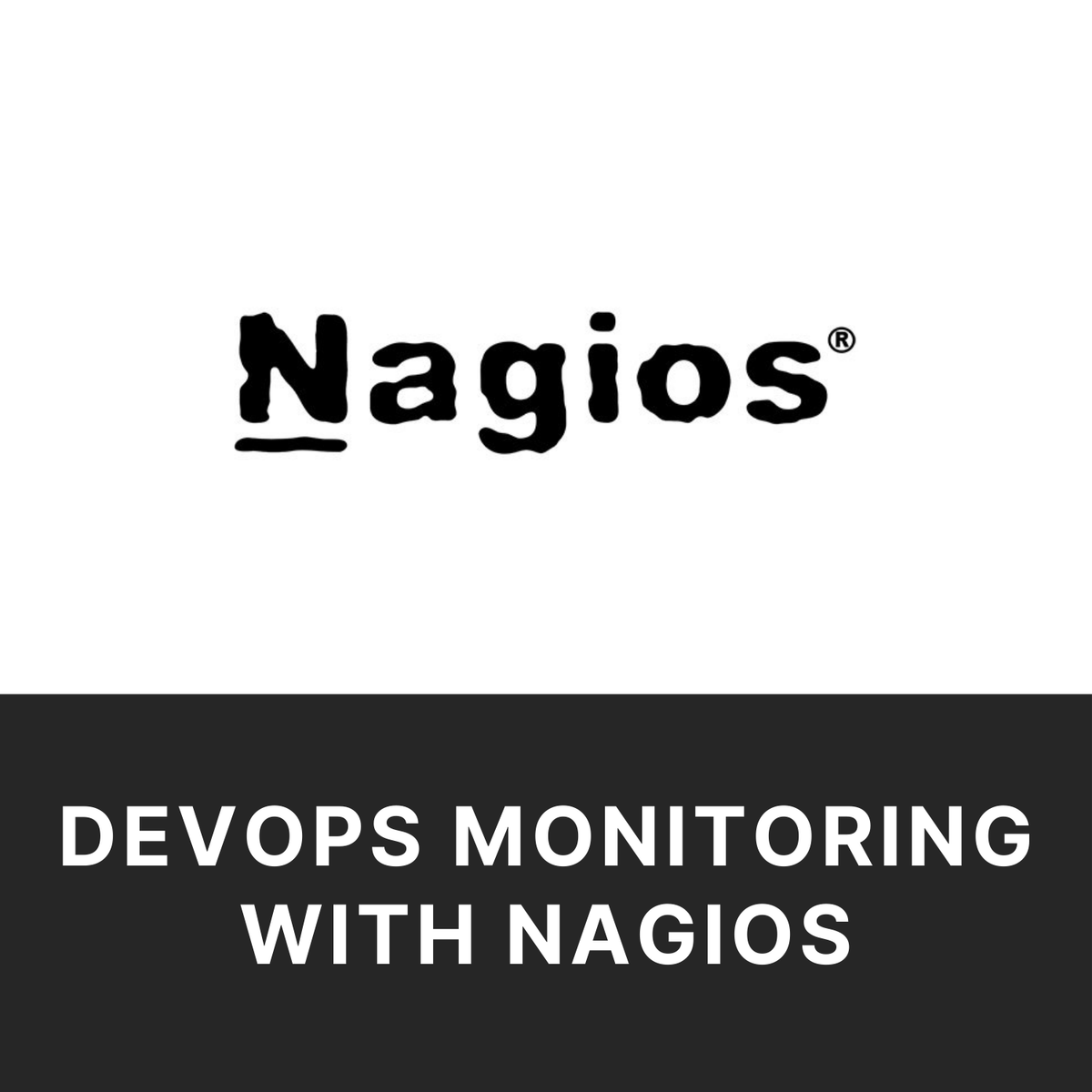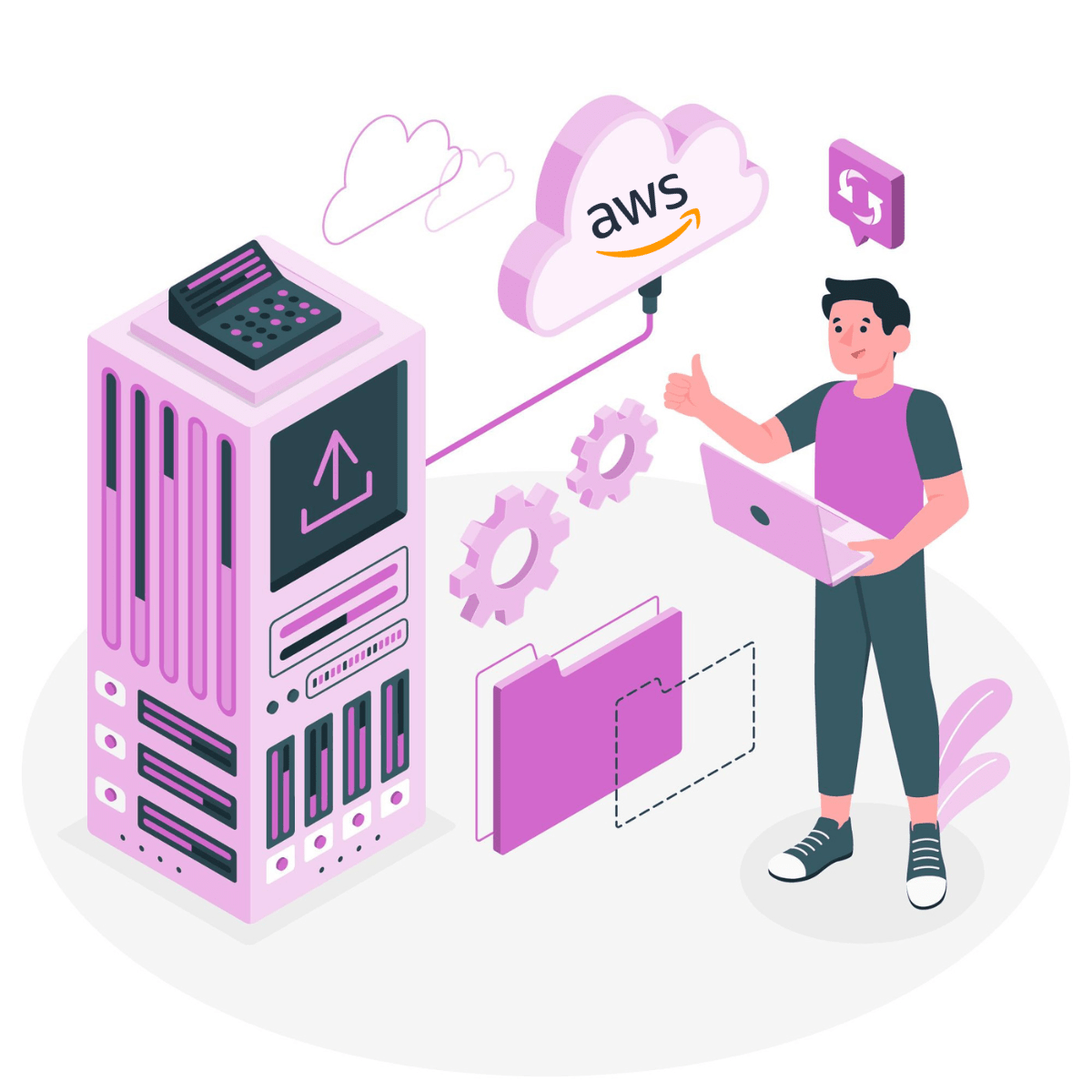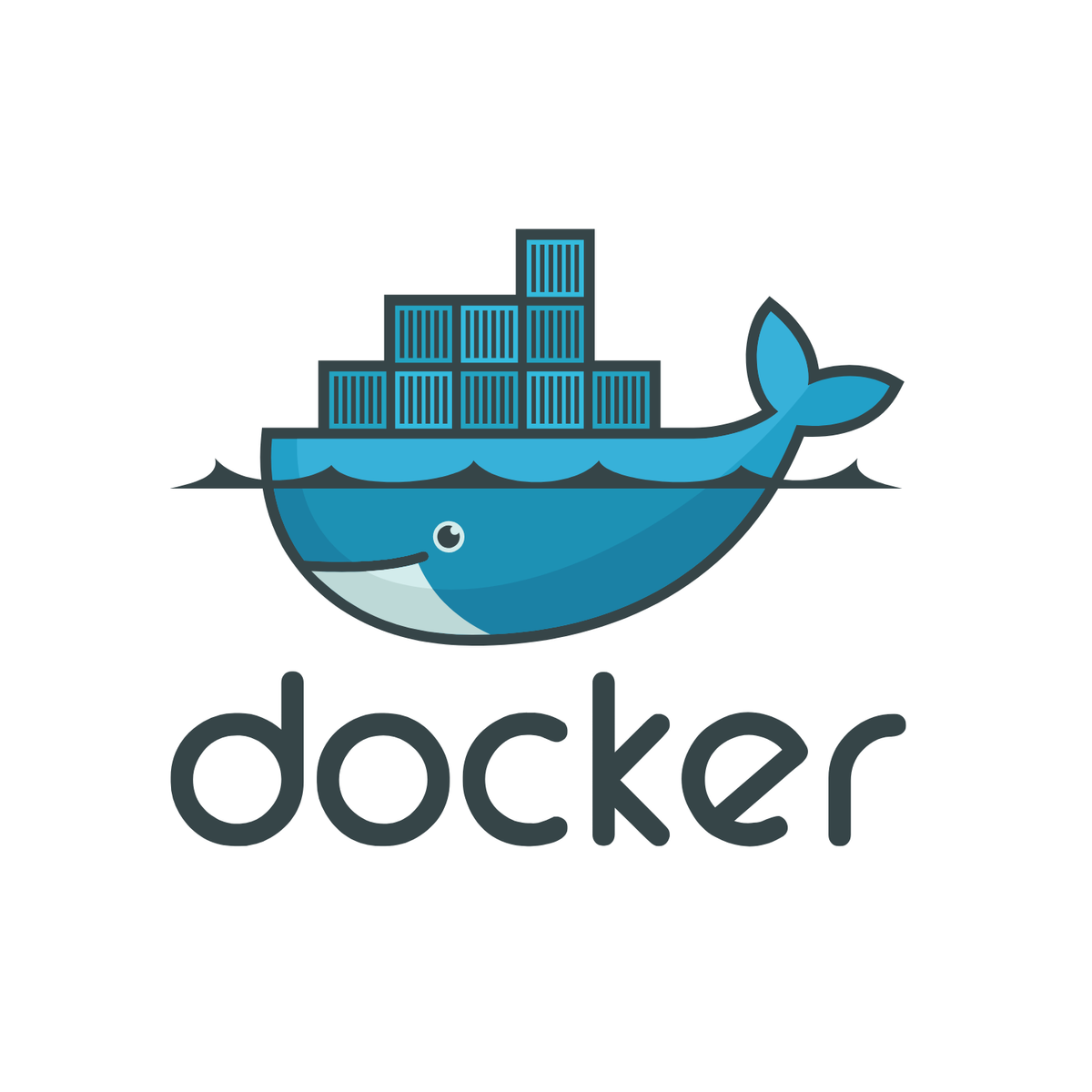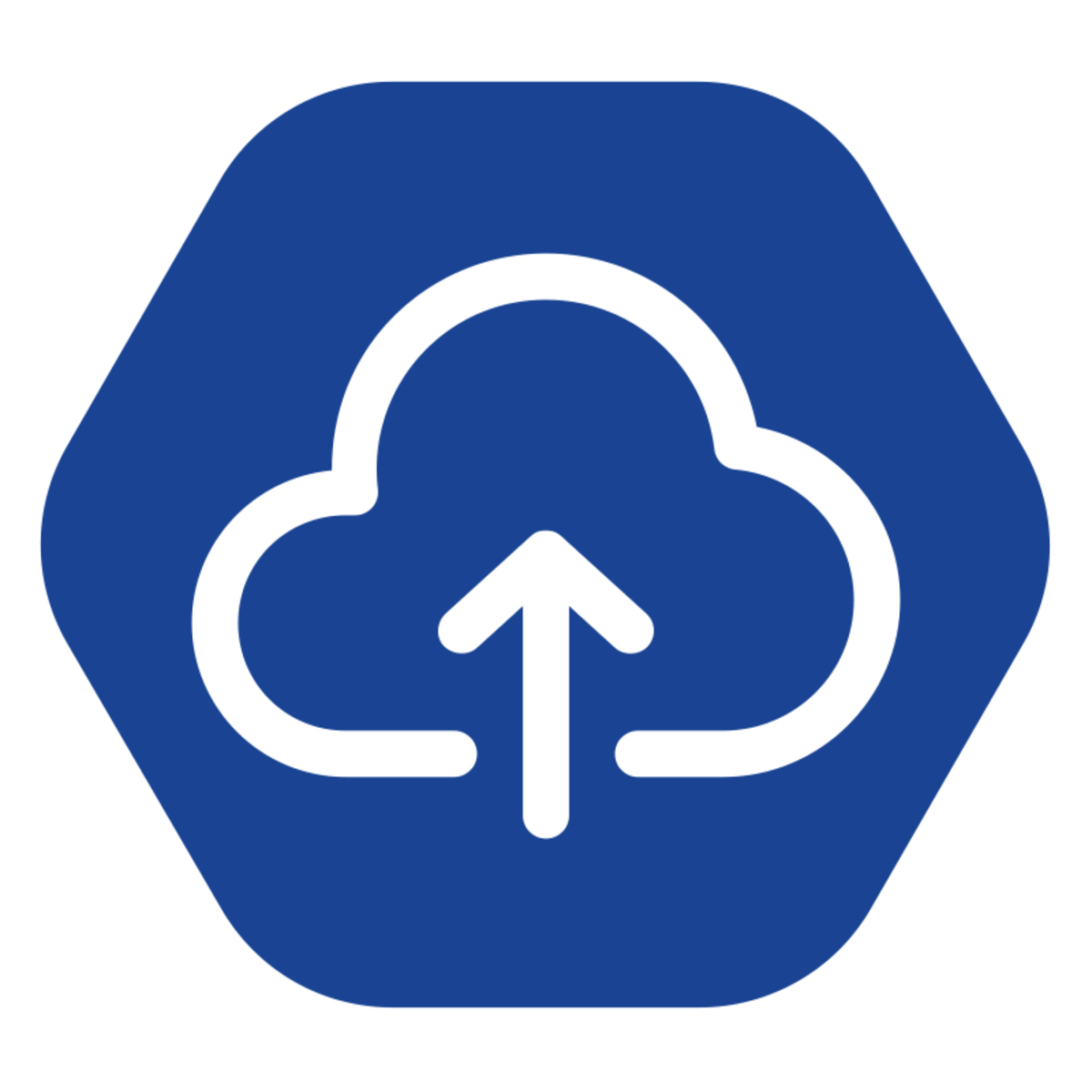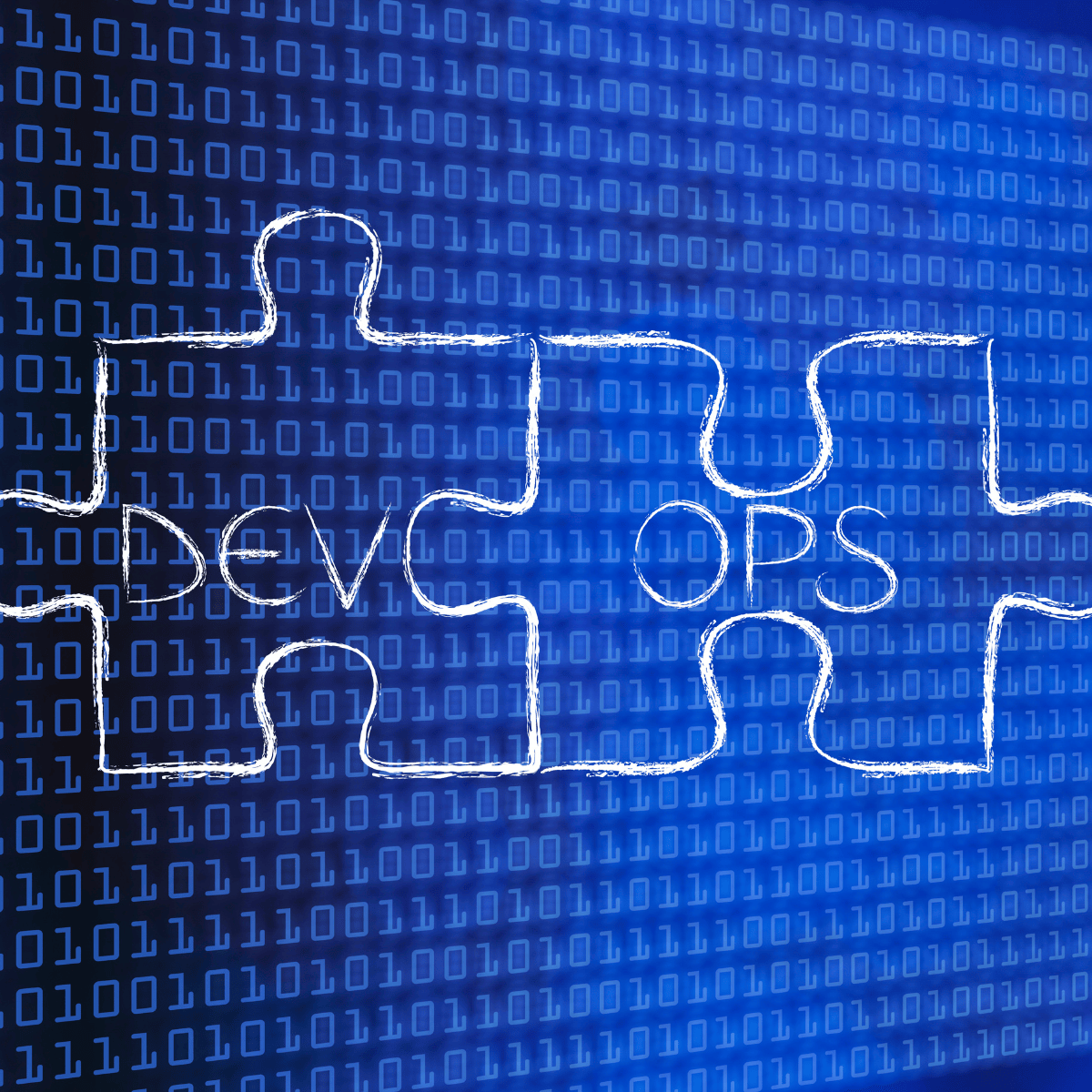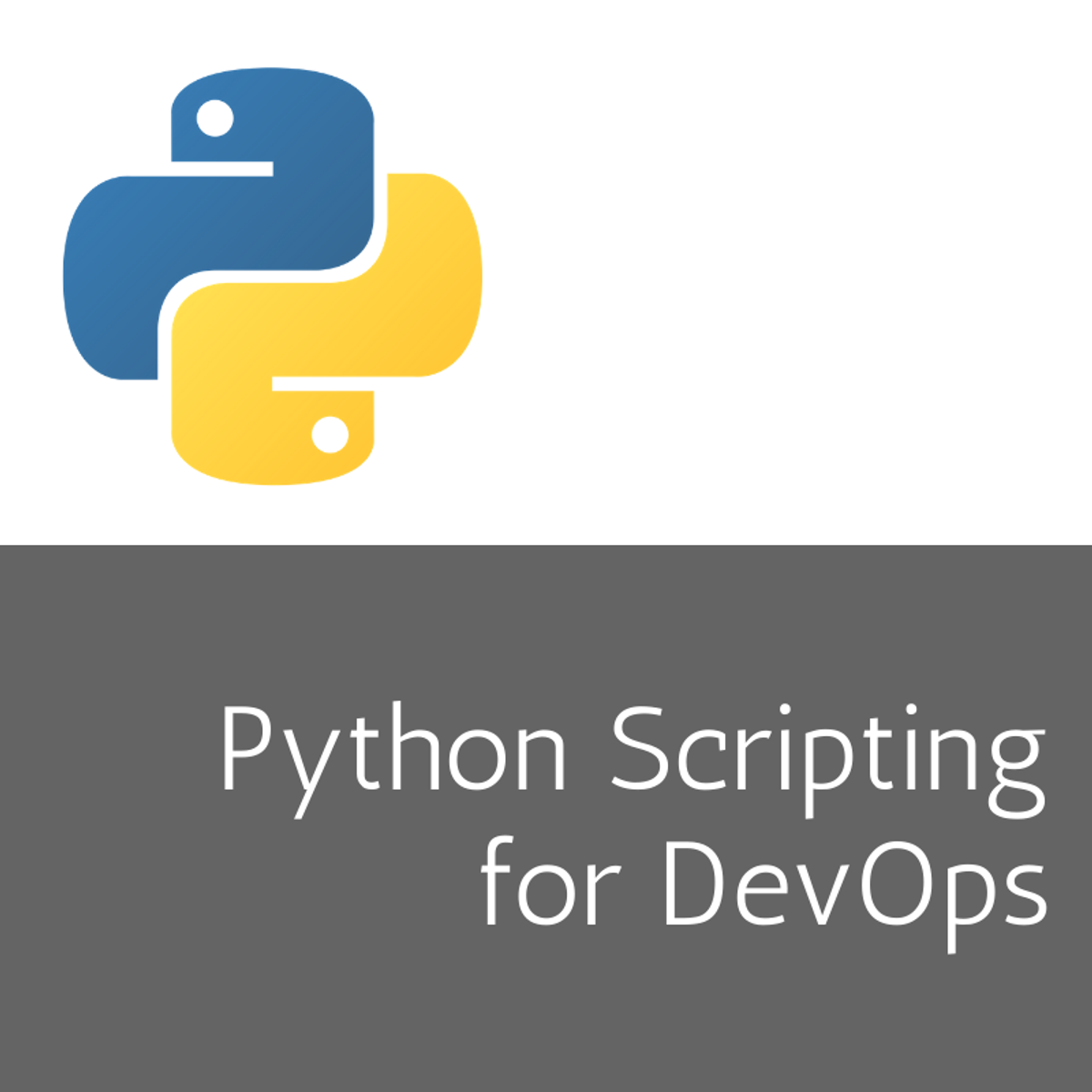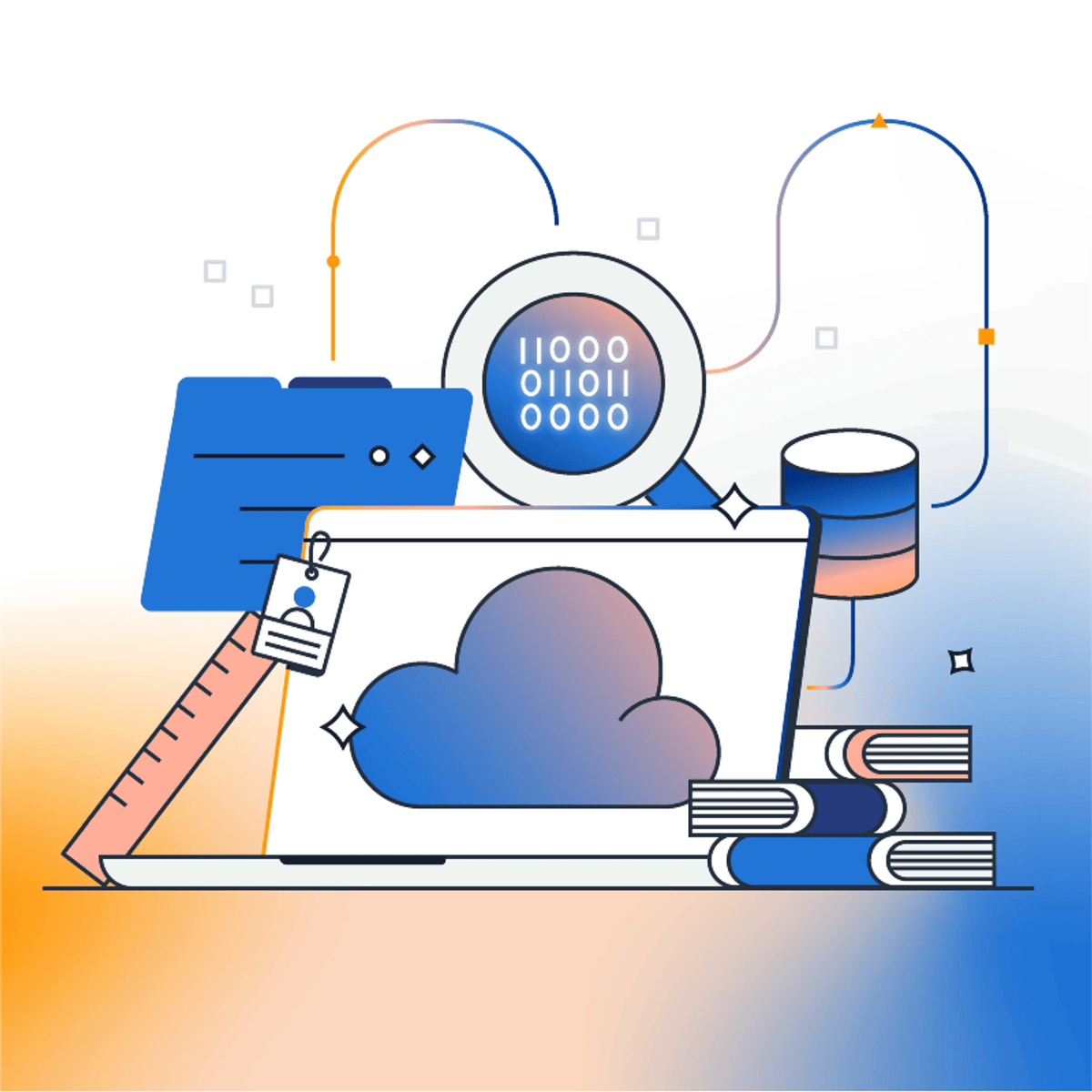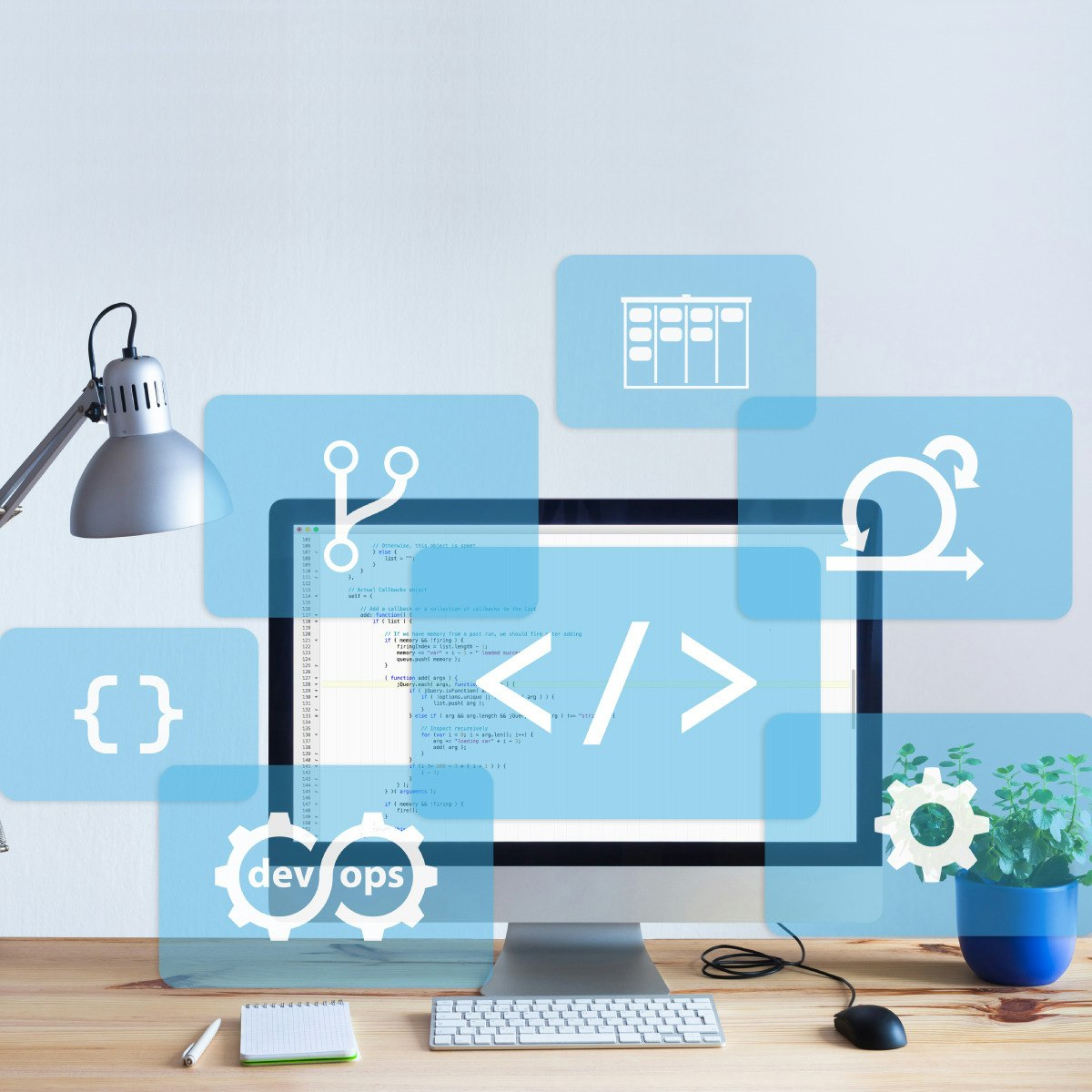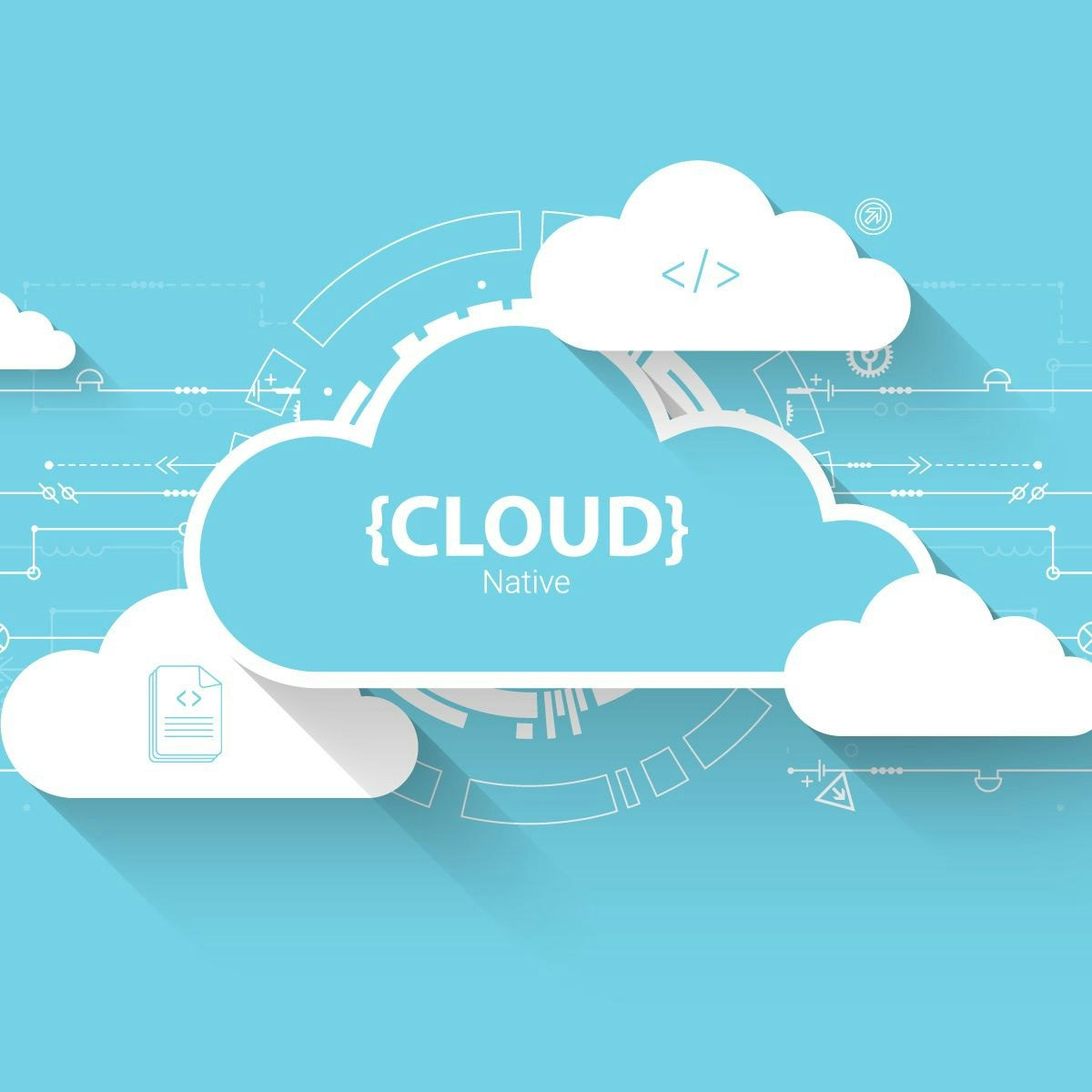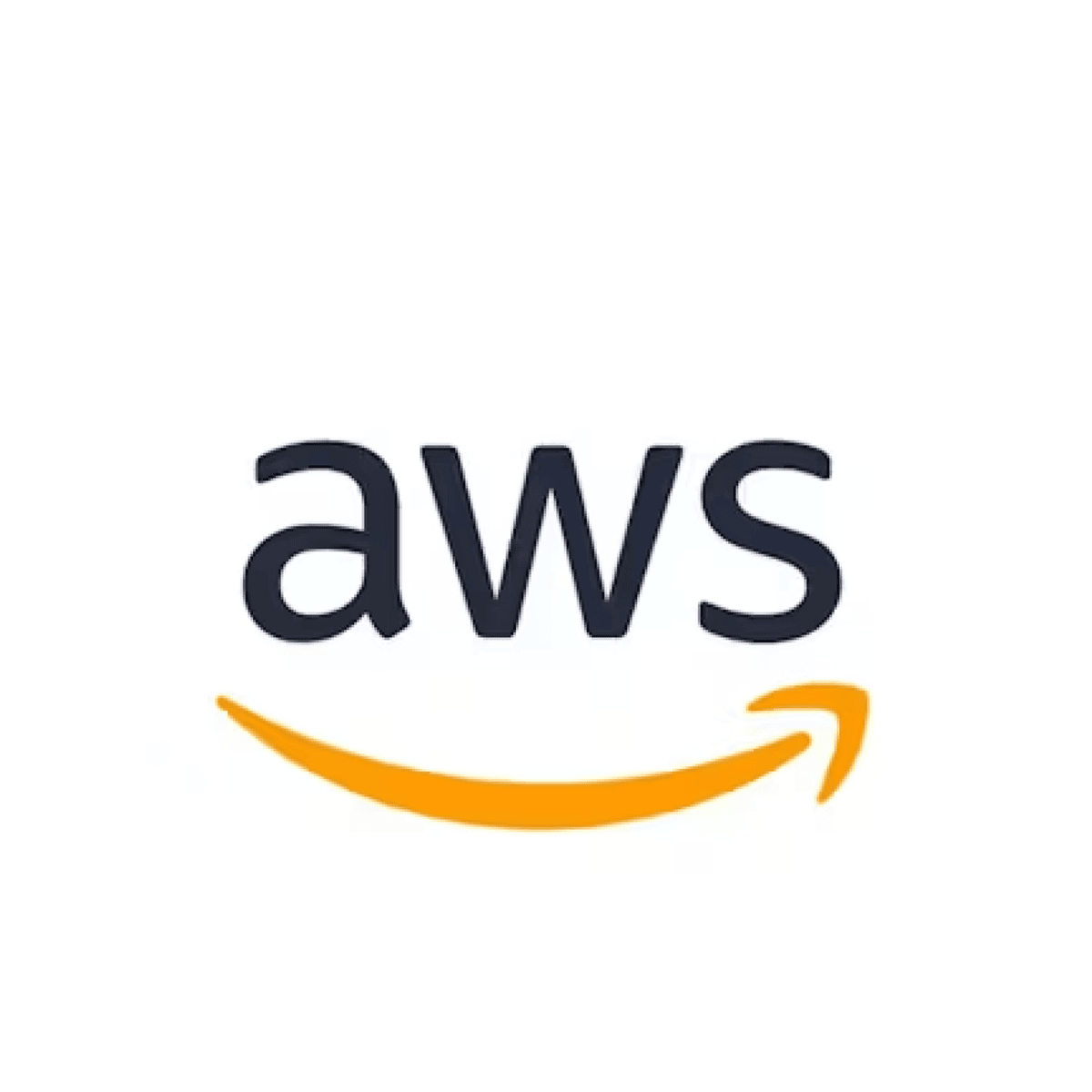DevOps Engineer
A Guide to Becoming a DevOps Engineer
DevOps Engineers play a crucial role in modern software development. They bridge the gap between software development (Dev) and IT operations (Ops), aiming to shorten the software development life cycle while delivering high-quality software reliably and efficiently. By integrating development, testing, deployment, and operations, DevOps practices help organizations release software faster, improve collaboration, and increase overall system stability.
Working as a DevOps Engineer can be engaging and exciting. You'll often find yourself at the intersection of software creation and its real-world application, automating processes to make everything run smoother. Imagine building automated pipelines that take code from a developer's machine, test it, and deploy it seamlessly to users, or designing resilient systems that can handle unexpected failures gracefully. This role requires a blend of technical expertise and collaborative spirit, making it a dynamic and rewarding career path for those passionate about technology and process improvement.
Introduction to DevOps Engineering
What is DevOps?
DevOps represents a cultural philosophy, a set of practices, and a suite of tools designed to increase an organization's ability to deliver applications and services at high velocity. It evolved from the need to overcome the traditional separation, and sometimes conflict, between development teams focused on building features and operations teams focused on stability.
The core idea is to foster collaboration and shared responsibility across the entire software lifecycle. This involves breaking down silos, automating processes wherever possible, and continuously monitoring and improving systems. Ultimately, DevOps aims to create a faster, more reliable, and more efficient flow from code development to production deployment and operation.
This approach contrasts sharply with older, more traditional IT models where development and operations worked in separate phases, often leading to bottlenecks, miscommunication, and slower release cycles. DevOps integrates these functions, promoting agility and responsiveness to business needs.
To gain a foundational understanding of the DevOps culture and its principles, consider exploring introductory courses. These can provide valuable insights into how DevOps transforms business perspectives and engineering practices.
Understanding the cultural shift is as important as learning the tools. These books offer insights into the philosophies and practices that underpin successful DevOps transformations.
DevOps vs. Traditional IT Roles
Traditional IT often involved distinct roles like System Administrators, Network Engineers, and Software Developers working in separate teams. System Administrators focused on maintaining server health and stability, Network Engineers managed connectivity, and Developers wrote code, often "throwing it over the wall" to operations for deployment.
A DevOps Engineer, however, typically possesses a broader skill set encompassing aspects of all these roles. They understand coding principles, infrastructure management, system administration, networking concepts, and security practices. Their goal is not just to maintain systems but to improve the entire delivery pipeline through automation and collaboration.
While a traditional System Administrator might manually configure servers, a DevOps Engineer is more likely to use Infrastructure as Code (IaC) tools like Terraform or CloudFormation to provision and manage infrastructure programmatically. Similarly, while developers traditionally focused solely on code, DevOps encourages them to understand the operational environment their code runs in.
This shift requires engineers to be more versatile and adaptable, comfortable working across different domains and collaborating closely with various teams. It moves away from specialization in isolation towards a more holistic understanding of the software lifecycle.
The DevOps Engineer's Role in the Software Lifecycle
DevOps Engineers are integral throughout the entire software development lifecycle (SDLC). Their involvement starts early, working with developers to ensure code is written with deployment and scalability in mind. They help set up development environments, implement version control practices (often using Git), and establish automated testing procedures.
A core responsibility is building and maintaining the Continuous Integration and Continuous Delivery (CI/CD) pipeline. This automated workflow compiles code, runs tests, packages applications, and deploys them to various environments (testing, staging, production). This ensures faster and more reliable software releases.
Post-deployment, DevOps Engineers focus on monitoring system performance, ensuring reliability, managing infrastructure, and responding to incidents. They use tools to track application health, log events, and visualize metrics, enabling quick identification and resolution of issues. They also play a key role in implementing security practices throughout the lifecycle, often referred to as DevSecOps.
Key Responsibilities of a DevOps Engineer
Implementing and Maintaining CI/CD Pipelines
A cornerstone of DevOps is the CI/CD pipeline. DevOps Engineers design, build, and manage these automated pipelines. Continuous Integration (CI) involves automatically building and testing code changes whenever developers commit them to a central repository like Git. This helps catch bugs early.
Continuous Delivery (CD) extends CI by automatically deploying validated code changes to a testing or production environment. DevOps Engineers select, configure, and maintain tools like Jenkins, GitLab CI, GitHub Actions, or CircleCI to orchestrate these pipelines.
They ensure the pipeline is efficient, reliable, and secure. This includes integrating various testing stages (unit, integration, security scans), managing artifacts (like Docker images), and implementing deployment strategies (e.g., blue-green, canary) to minimize downtime and risk during releases.
These courses provide hands-on experience in building and managing CI/CD pipelines using popular tools and platforms.
For a deeper dive into the principles and practices of CI/CD, these books are highly recommended.
Infrastructure as Code (IaC) Practices
Infrastructure as Code (IaC) is the practice of managing and provisioning computer data centers through machine-readable definition files, rather than physical hardware configuration or interactive configuration tools. DevOps Engineers use IaC tools like Terraform, AWS CloudFormation, Azure Resource Manager (ARM) templates, or Ansible to define infrastructure (servers, databases, networks) in code.
This approach brings numerous benefits. It allows infrastructure configurations to be version-controlled alongside application code, ensuring consistency across environments (development, testing, production). It enables automated, repeatable, and reliable infrastructure provisioning and updates, reducing manual errors and speeding up deployment.
DevOps Engineers write, test, and maintain these IaC templates. They ensure the infrastructure defined in code aligns with application requirements, security policies, and cost considerations. Mastery of IaC is crucial for managing modern, scalable cloud environments effectively.
These courses offer practical training in using IaC tools to automate infrastructure management on various cloud platforms.
Monitoring, Logging, and Observability
Ensuring systems are running reliably and performing optimally is a critical responsibility. DevOps Engineers implement and manage monitoring, logging, and observability systems. Monitoring involves collecting metrics (CPU usage, memory, response times) to track system health and performance.
Logging gathers event data from applications and infrastructure, crucial for debugging and auditing. Observability goes beyond monitoring and logging; it provides deeper insights into system behavior, allowing engineers to understand *why* something is happening, not just *that* it happened. This often involves correlating metrics, logs, and traces (tracking requests across distributed systems).
Engineers use tools like Prometheus, Grafana, Datadog, Splunk, or the ELK Stack (Elasticsearch, Logstash, Kibana) to collect, visualize, and alert on this data. They set up dashboards, define alert rules, and use the insights gained to proactively identify potential issues, troubleshoot problems, and optimize performance.
Understanding how to monitor and manage systems effectively is crucial. These courses cover essential monitoring tools and practices.
Cross-Team Collaboration and Communication
DevOps is fundamentally about breaking down silos and fostering collaboration. DevOps Engineers act as facilitators, bridging the gap between development, operations, security, quality assurance (QA), and sometimes business teams. Effective communication is paramount.
They work closely with developers to understand application architecture and deployment needs. They collaborate with operations teams to ensure infrastructure stability and performance. They engage with security teams to integrate security practices early and often (DevSecOps). They also liaise with QA teams to automate testing within the CI/CD pipeline.
This requires strong interpersonal skills, empathy, and the ability to translate technical concepts for different audiences. DevOps Engineers often champion the DevOps culture within the organization, advocating for shared goals, transparency, and continuous feedback loops. Tools like Slack, Jira, or Confluence are often used, but the emphasis is on effective human interaction.
Building a culture of collaboration and reliability is a key aspect of DevOps. These resources focus on the cultural and human elements.
Core DevOps Engineer Tools and Technologies
Understanding the DevOps Toolchain
A DevOps toolchain is a set of integrated tools used to automate and streamline the software development and delivery lifecycle. It's not about mastering every single tool, but understanding the purpose of different tool categories and how they fit together. Key categories include:
Version Control Systems (VCS): Tools like Git, hosted on platforms like GitHub, GitLab, or Bitbucket, are fundamental for tracking code changes and enabling collaboration.
Continuous Integration/Continuous Delivery (CI/CD): Jenkins, GitLab CI, GitHub Actions, CircleCI automate building, testing, and deploying code.
Configuration Management: Tools like Ansible, Chef, Puppet, and SaltStack automate the configuration of servers and infrastructure, ensuring consistency.
Containerization: Docker allows packaging applications and their dependencies into isolated containers.
Container Orchestration: Kubernetes, Docker Swarm, or Nomad manage containerized applications at scale, handling deployment, scaling, and networking.
Infrastructure as Code (IaC): Terraform, CloudFormation, ARM Templates define infrastructure through code.
Monitoring & Logging: Prometheus, Grafana, ELK Stack, Datadog, Dynatrace provide visibility into system health and performance.
The specific tools used vary widely between organizations, but understanding these categories is essential for any DevOps Engineer. You can explore various Tech Skills, including many DevOps tools, on OpenCourser.
These courses introduce foundational tools commonly used in DevOps environments.
Cloud Platform Ecosystems
Cloud computing platforms like Amazon Web Services (AWS), Microsoft Azure, and Google Cloud Platform (GCP) are central to modern DevOps practices. They provide the underlying infrastructure (compute, storage, networking) and a vast array of managed services that DevOps Engineers leverage.
Understanding cloud concepts like Infrastructure as a Service (IaaS), Platform as a Service (PaaS), and Software as a Service (SaaS) is fundamental. DevOps Engineers need proficiency in at least one major cloud provider's ecosystem, including its core services, security models, networking capabilities, and cost management features.
This involves working with virtual machines, managed databases, load balancers, serverless functions, container services (like AWS EKS, Azure AKS, Google GKE), and specific DevOps tools offered by the cloud provider (e.g., AWS CodePipeline, Azure DevOps, Google Cloud Build). Familiarity with cloud provider CLIs (Command Line Interfaces) and SDKs (Software Development Kits) is also crucial for automation.
Gaining familiarity with major cloud platforms is essential. These courses provide introductions and foundational knowledge for AWS, Azure, and Google Cloud.
For those managing cloud infrastructure, these books offer architectural guidance and patterns.
Emerging Technologies in DevOps
The DevOps landscape is constantly evolving. Several emerging trends and technologies are reshaping the field, requiring engineers to continuously learn and adapt. Key areas include:
AIOps (Artificial Intelligence for IT Operations): Leveraging AI and machine learning to automate and enhance IT operations, including anomaly detection, predictive analytics for incident prevention, and automated root cause analysis.
GitOps: An operational framework that takes DevOps best practices used for application development (like version control, collaboration, CI/CD) and applies them to infrastructure automation. Git is used as the single source of truth for declarative infrastructure and applications.
Platform Engineering: Building internal platforms that provide self-service capabilities for developers, abstracting away infrastructure complexity and enabling faster application delivery.
FinOps (Cloud Financial Operations): Bringing financial accountability to the variable spend model of cloud, enabling teams to make trade-offs between speed, cost, and quality.
DevSecOps: Integrating security practices deeply into the DevOps pipeline ("shifting left") rather than treating it as an afterthought.
Staying updated on these trends is important for career longevity. According to some analyses, AI integration is enhancing DevOps practices, automating tasks, and optimizing processes, requiring DevOps professionals to adapt and acquire AI-related skills.
Exploring emerging areas like DevSecOps and GitOps is crucial for staying current. These courses introduce these evolving practices.
Essential Skills for DevOps Engineers
Technical Proficiency
A strong technical foundation is essential. DevOps Engineers need a blend of skills often drawn from software development and systems administration. Key technical areas include:
Operating Systems: Deep understanding of Linux is almost always required, as it underpins most server environments. Familiarity with Windows Server can also be beneficial depending on the organization.
Scripting Languages: Proficiency in scripting languages like Python, Bash, Ruby, or Go is critical for automating tasks, building tools, and managing infrastructure.
Networking: Solid understanding of TCP/IP, DNS, HTTP/S, load balancing, firewalls, and general network troubleshooting.
Cloud Computing: Experience with core services (compute, storage, networking, databases) on at least one major cloud platform (AWS, Azure, GCP).
CI/CD Tools: Hands-on experience with tools like Jenkins, GitLab CI, GitHub Actions, etc.
Containerization & Orchestration: Proficiency with Docker and Kubernetes is increasingly standard.
Infrastructure as Code (IaC): Experience with Terraform, Ansible, CloudFormation, or similar tools.
Monitoring & Logging: Familiarity with tools like Prometheus, Grafana, ELK Stack, Datadog.
These courses cover fundamental technical skills often required for DevOps roles, including Linux, scripting, and cloud basics.
Essential Soft Skills
Technical skills alone are not enough. DevOps thrives on collaboration and communication, making soft skills equally crucial. DevOps Engineers need to work effectively across different teams and communicate complex technical ideas clearly.
Key soft skills include:
Collaboration: Working effectively with developers, operations staff, QA, security, and product managers.
Communication: Clearly articulating technical concepts, documenting processes, and providing updates to stakeholders.
Problem-Solving: Diagnosing complex issues across the stack, often under pressure during outages or incidents.
Adaptability & Continuous Learning: The tech landscape changes rapidly; a willingness to learn new tools and methodologies is vital.
Systems Thinking: Understanding how different components of a system interact and viewing challenges holistically.
Troubleshooting under pressure: Remaining calm and methodical when diagnosing and resolving production issues.
Developing these skills often comes through experience, but being mindful of their importance and actively seeking opportunities to practice them is key. Courses focusing on teamwork, communication, and agile methodologies can also be beneficial.
The Security Mindset (DevSecOps)
Security can no longer be an afterthought bolted on at the end of the development cycle. DevSecOps integrates security practices into every phase of the DevOps pipeline. DevOps Engineers play a critical role in fostering this security-first mindset.
This involves automating security checks within the CI/CD pipeline, such as static application security testing (SAST), dynamic application security testing (DAST), and software composition analysis (SCA) to find vulnerabilities in code and dependencies. It also means implementing security best practices for infrastructure configuration, network security, secrets management, and access control.
DevOps Engineers collaborate with security teams to understand threats, implement controls, and ensure compliance with security policies and regulations. They help automate security monitoring and incident response processes. A proactive approach to security is essential to protect systems and data in today's threat landscape.
Integrating security into the DevOps lifecycle is crucial. These courses introduce secure software development practices.
Formal Education Pathways to DevOps Engineering
Relevant Undergraduate Degrees
While a specific "DevOps degree" is uncommon, several traditional academic paths provide a strong foundation. A Bachelor's degree in Computer Science is perhaps the most common background, offering deep knowledge of programming, algorithms, data structures, and operating systems.
Other relevant degrees include Information Technology (IT), Software Engineering, Systems Engineering, or even Electrical/Computer Engineering. These programs often cover essential topics like networking, system administration, databases, and software development methodologies, all of which are applicable to DevOps.
Regardless of the specific major, coursework focusing on operating systems (especially Linux), networking principles, scripting/programming (Python is particularly popular), databases, and cloud computing concepts will be highly beneficial. Some universities are beginning to offer specific courses or concentrations related to cloud computing and DevOps practices within these broader degree programs.
Graduate Programs and Specializations
For those seeking deeper specialization or transitioning from a different field, graduate programs can be an option. Master's degrees in Computer Science, Software Engineering, or Information Systems may offer specializations or elective tracks in areas like Cloud Computing, Distributed Systems, Cybersecurity, or Systems Engineering, which align well with DevOps.
Some universities are now introducing specific Master's programs or graduate certificates focused explicitly on Cloud Computing or DevOps. These programs often combine theoretical knowledge with practical, hands-on experience using industry-standard tools and platforms. Research opportunities at the graduate level might explore areas like cloud architecture optimization, CI/CD process improvements, infrastructure automation techniques, or the application of AI in operations (AIOps).
However, it's important to note that extensive formal education like a Master's or PhD is not typically a strict requirement for most DevOps roles, where practical skills and experience are often valued more highly.
The Role of Internships and Co-ops
Gaining practical experience during formal education is invaluable. Internships or cooperative education (co-op) programs provide real-world exposure to IT environments and development processes. Seeking internships in roles related to software development, system administration, network engineering, or cloud support can provide relevant foundational experience.
Even if an internship isn't explicitly labeled "DevOps," the skills gained in managing systems, writing scripts, working with cloud platforms, or participating in a software development team are highly transferable. These experiences help bridge the gap between academic learning and industry practice.
Look for companies known for strong engineering practices or those heavily utilizing cloud technologies. Participating in university clubs related to coding, cybersecurity, or Linux user groups can also provide networking opportunities and hands-on project experience.
Accelerating DevOps Careers Through Online Learning
Can You Learn DevOps Online?
Absolutely. The DevOps field is particularly well-suited to online learning due to its heavy reliance on specific tools, platforms, and practical skills. Numerous online courses, bootcamps, and certification programs cover everything from foundational concepts to advanced specializations.
Online learning offers flexibility, allowing you to learn at your own pace and focus on the specific technologies most relevant to your career goals or current job market demand. Many platforms provide hands-on labs and projects, enabling you to gain practical experience with cloud platforms, containerization tools, CI/CD pipelines, and IaC frameworks without needing extensive physical hardware.
Whether you're supplementing a formal degree, transitioning from an adjacent IT role, or starting from scratch, online resources provide accessible pathways to acquire DevOps skills. Platforms like OpenCourser aggregate thousands of courses, making it easier to find resources tailored to your needs. You can browse courses by topic, such as Cloud Computing or IT & Networking.
These courses are designed to provide comprehensive training aligned with industry certifications and roles.
Building a Portfolio with Online Projects
Simply completing online courses isn't always enough; demonstrating practical application of skills is crucial. Building a portfolio of personal projects showcases your abilities to potential employers more effectively than just listing completed courses.
Use the skills learned online to create tangible projects. Examples include: setting up a complete CI/CD pipeline for a sample application, writing Terraform or Ansible scripts to automate the deployment of a multi-tier web application on a cloud platform, containerizing an existing application with Docker and deploying it using Kubernetes, or setting up a monitoring and alerting system using Prometheus and Grafana.
Document your projects clearly on platforms like GitHub, explaining the problem you solved, the tools you used, and the architecture you implemented. Include configuration files, scripts, and a README file detailing how to run or replicate your setup. A strong portfolio provides concrete evidence of your capabilities and initiative.
Capstone projects, often included in specialized online programs, are excellent ways to build portfolio pieces under guided supervision.
Certifications and Hands-on Labs
Industry certifications can validate your knowledge and skills to potential employers, especially when transitioning into the field. Major cloud providers (AWS, Azure, GCP) offer DevOps-specific certifications, and organizations like the Cloud Native Computing Foundation (CNCF) offer certifications for Kubernetes (CKA, CKAD, CKS). HashiCorp offers certifications for tools like Terraform.
While opinions vary on the relative importance of certifications versus experience, certifications provide a standardized benchmark of knowledge and demonstrate commitment to learning. They are particularly valuable early in a career or when pivoting from another field. Many online courses are specifically designed to prepare you for these certification exams.
Combining certification study with hands-on labs is crucial. Labs provide the practical experience needed to solidify theoretical knowledge. Look for courses and platforms that integrate labs, allowing you to practice configuring tools, deploying applications, and troubleshooting issues in realistic environments. OpenCourser's Learner's Guide offers tips on maximizing learning from online courses and labs.
These courses focus on preparing for specific, widely recognized industry certifications.
Transitioning from Related Roles
Many successful DevOps Engineers transition from adjacent IT roles like System Administration, Software Development, Network Engineering, or Quality Assurance. These roles provide a strong foundation in specific areas relevant to DevOps.
If you're a System Administrator, focus on learning scripting/coding, cloud platforms, IaC, and containerization. If you're a Software Developer, deepen your understanding of infrastructure, operating systems, networking, CI/CD pipelines, and monitoring. Network Engineers can leverage their networking expertise while learning automation, cloud, and IaC. QA Engineers can focus on test automation within CI/CD pipelines and broader system understanding.
Identify the skills gaps between your current role and a DevOps position. Utilize online courses, certifications, and personal projects to fill those gaps. Seek opportunities within your current organization to work on DevOps-related tasks or collaborate with DevOps teams. Highlighting transferable skills and demonstrating initiative through self-learning and projects can significantly aid the transition.
Making a career change can feel daunting, but remember that your existing IT experience is valuable. Focus on building bridges between what you know and what you need to learn. Be patient, persistent, and leverage online resources to upskill strategically. Your journey might involve starting in a junior DevOps role, but your prior experience will likely accelerate your growth.
DevOps Engineer Career Progression
Entry-Level vs. Senior Roles
Entry-level DevOps roles, sometimes titled Junior DevOps Engineer or Release Manager, often focus on supporting existing pipelines, performing routine tasks, managing specific tools, and assisting senior engineers. Responsibilities might include running scripts, monitoring alerts, basic troubleshooting, and contributing to documentation.
As engineers gain experience, they move into mid-level and senior roles. Senior DevOps Engineers take on more responsibility for designing, implementing, and optimizing CI/CD pipelines and infrastructure automation. They lead projects, mentor junior engineers, make architectural decisions, tackle complex troubleshooting, and drive improvements in reliability, security, and efficiency.
Senior roles require a deeper understanding of system architecture, networking, security, and cloud platforms, along with strong problem-solving and communication skills. Experience with a wider range of tools and the ability to select the right tool for the job are also expected. The transition involves moving from executing tasks to designing solutions and leading initiatives.
While some sources suggest DevOps is inherently an advanced position requiring prior experience, entry points exist, often through internal transitions or roles focused on specific aspects like CI/CD or cloud operations. Data from 2024 indicated that only about 5% of Kubernetes-related DevOps job postings were for junior-level positions, with the majority seeking senior-level experience.
Specialization Paths
As DevOps Engineers gain experience, they often develop deeper expertise in specific areas. Common specialization paths include:
Cloud DevOps: Focusing on a specific cloud platform (AWS, Azure, GCP) and mastering its services, architecture patterns, and DevOps tools. This often involves achieving advanced cloud certifications.
Security (DevSecOps): Specializing in integrating security practices throughout the DevOps lifecycle, including automated security testing, vulnerability management, compliance, and secure infrastructure design.
Site Reliability Engineering (SRE): Focusing intensely on reliability, availability, performance, and automation, often applying software engineering principles to infrastructure and operations problems. SRE roles frequently involve setting Service Level Objectives (SLOs) and managing error budgets.
CI/CD Specialization: Becoming an expert in designing, optimizing, and managing complex CI/CD pipelines across various technologies and platforms.
Infrastructure/Platform Engineering: Focusing on building and maintaining the underlying infrastructure and internal platforms that development teams use.
Choosing a specialization often depends on personal interest, project experience, and market demand.
Leadership and Architectural Roles
Experienced DevOps professionals can progress into leadership or architectural roles. These positions move beyond hands-on implementation towards strategy, design, and team management.
DevOps Architect: Designs the overall DevOps strategy, toolchains, and processes for an organization or large project. Requires deep technical knowledge across multiple domains and strong architectural design skills.
Platform Architect: Focuses specifically on designing and overseeing the development of internal developer platforms.
DevOps Team Lead/Manager: Leads a team of DevOps engineers, responsible for project delivery, mentoring, process improvement, and aligning team efforts with business goals. Requires strong leadership and people management skills.
Principal DevOps Engineer: A highly technical individual contributor role, often acting as a subject matter expert and technical leader within the organization, driving innovation and setting technical direction.
Further progression can lead to higher-level management roles like Head of DevOps, Director of Engineering, or even Chief Technology Officer (CTO), depending on the organization's structure and the individual's career aspirations.
Industry Trends Impacting DevOps Engineers
Market Demand and Growth
The demand for DevOps Engineers remains strong and continues to grow. As organizations increasingly adopt cloud computing, microservices, and agile methodologies, the need for professionals who can streamline software delivery and manage complex infrastructure efficiently becomes paramount. Reports indicate significant year-over-year growth in job postings for DevOps roles.
According to a Burning Glass Institute report cited in 2025, job postings for DevOps engineers saw substantial annual growth driven by cloud adoption and automation. LinkedIn's workforce reports have also consistently ranked DevOps engineering among the most in-demand tech roles globally. The global DevOps market size is projected to expand significantly, reaching potentially $25.5 billion by 2028 according to some forecasts, up from around $10.4 billion in 2023.
This high demand translates into competitive salaries and numerous career opportunities across various industries, from tech startups to large enterprises and government agencies. The trend suggests robust job security and growth potential for skilled DevOps professionals.
Impact of AI and Automation
Artificial Intelligence (AI) and increased automation are significantly impacting the DevOps field, but largely in ways that enhance rather than replace the role. AI is being integrated into DevOps tools and practices (AIOps) to improve efficiency and decision-making.
AI can optimize CI/CD pipelines, automate testing processes, predict potential system failures, analyze logs for anomalies, automate incident response, and even assist in writing configuration code. For instance, AI tools might suggest resource optimizations based on workload patterns or help pinpoint root causes during incidents faster than manual analysis.
While AI automates many routine tasks, it creates a need for DevOps engineers to understand, implement, manage, and interpret these AI-driven systems. The focus shifts towards higher-level tasks like strategic planning, designing complex systems, ensuring AI model reliability, and managing the integration of AI tools. DevOps professionals will increasingly need AI-related skills and data literacy to remain competitive.
These courses explore the intersection of AI/ML with DevOps and related fields.
Cloud Cost Optimization (FinOps)
As cloud adoption matures, managing and optimizing cloud spending has become a major focus for organizations. This has given rise to the practice of FinOps (Cloud Financial Operations), which brings financial accountability to the variable spending model of the cloud.
DevOps Engineers are increasingly involved in FinOps initiatives. Their work in infrastructure provisioning (IaC), resource configuration, and autoscaling directly impacts cloud costs. They are expected to design and implement solutions that are not only functional and reliable but also cost-effective.
This involves understanding cloud provider pricing models, using cost management tools, implementing tagging strategies for cost allocation, optimizing resource utilization (e.g., right-sizing instances, using reserved instances or savings plans), and automating cost-saving measures like shutting down unused resources. Collaboration with finance and business teams is key to balancing performance, reliability, and cost.
Challenges in Modern DevOps Engineering
Toolchain Complexity and Integration
The DevOps landscape is characterized by a vast and rapidly evolving ecosystem of tools. While this provides flexibility, it also introduces significant complexity. Selecting the right tools, integrating them seamlessly into a cohesive toolchain, and managing their updates and maintenance can be challenging.
Ensuring compatibility between different tools (e.g., CI server, artifact repository, deployment tool, monitoring system) requires careful planning and ongoing effort. Poor integration can lead to inefficiencies, data silos, and difficulties in troubleshooting issues that span multiple tools. This "tool sprawl" can overwhelm teams if not managed strategically.
Organizations need to balance adopting powerful new technologies with maintaining a manageable and well-integrated toolchain. This often involves standardizing on specific tools where appropriate, establishing clear integration patterns, and investing in training for the team.
Balancing Speed vs. Stability
One of the core tenets of DevOps is accelerating software delivery. However, increasing deployment frequency can potentially introduce instability if not managed carefully. A constant challenge for DevOps Engineers is balancing the business need for speed and new features with the operational requirement for system stability and reliability.
Implementing robust automation, comprehensive testing (unit, integration, end-to-end, security), effective monitoring, and gradual deployment strategies (like canary releases or blue-green deployments) are key techniques to mitigate risks associated with rapid releases.
This balancing act requires careful process design, strong collaboration between development and operations, and a culture that prioritizes both speed and quality. It often involves defining clear Service Level Objectives (SLOs) and using error budgets to manage the acceptable level of risk.
Cultural Adoption Barriers
DevOps is as much about cultural change as it is about tools and processes. Implementing DevOps practices successfully often requires shifting organizational culture, which can be a significant challenge, particularly in large, established enterprises with ingrained silos and traditional ways of working.
Resistance to change, lack of trust between teams, differing priorities (e.g., developers focused on features, operations focused on stability), and insufficient management buy-in can hinder adoption. Overcoming these barriers requires strong leadership, clear communication of benefits, fostering a culture of psychological safety where teams feel comfortable experimenting and learning from failures, and celebrating shared successes.
DevOps Engineers often act as change agents, promoting collaboration, advocating for DevOps principles, and demonstrating the value of new ways of working through successful pilot projects. Building trust and shared understanding across teams is crucial for long-term success.
DevOps Engineer Career FAQs
Is DevOps being replaced by AI or Platform Engineering?
No, AI and Platform Engineering are generally seen as evolving and enhancing DevOps practices, rather than replacing the core principles or the need for skilled engineers. AI is automating certain tasks and providing deeper insights (AIOps), shifting the focus of DevOps engineers towards more strategic work like managing AI systems and interpreting data.
Platform Engineering aims to provide developers with self-service capabilities, abstracting infrastructure complexity. This aligns with DevOps goals of efficiency and speed but requires engineers (often with DevOps backgrounds) to build and maintain these internal platforms. The focus might shift from managing individual application pipelines to building the platform that manages many pipelines.
The consensus is that the DevOps role is evolving. Engineers need to adapt by learning new skills related to AI, data analysis, and platform building, but the fundamental need for professionals who bridge development and operations, understand the full lifecycle, and drive automation and collaboration remains strong.
Do Certifications or Experience Matter More?
Both certifications and experience are valuable, and the emphasis may vary depending on the employer and the specific role. Certifications (like AWS Certified DevOps Engineer, CKA, Terraform Associate) provide a structured way to learn and demonstrate foundational knowledge of specific tools and platforms. They are particularly useful for entry-level candidates or those transitioning careers, acting as a signal of commitment and baseline competency.
However, real-world experience is often considered paramount. Practical experience involves dealing with unpredictable situations, troubleshooting complex issues under pressure, integrating diverse systems, and navigating organizational dynamics – aspects not fully captured by certifications. Experience demonstrates the ability to apply knowledge effectively in practice.
Ideally, candidates should aim for a combination of both. Use certifications to build foundational knowledge and validate skills, then seek opportunities (through projects, internships, or job roles) to gain hands-on experience. Many employers look for demonstrated practical skills, often assessed through technical interviews and portfolio reviews, alongside relevant certifications.
record:45yapc
How Common is Remote Work for DevOps Engineers?
Remote work has become quite common for DevOps Engineers, arguably more so than in many other IT roles. The nature of the work, which heavily involves cloud platforms, automation tools, and digital collaboration, lends itself well to remote setups.
Many companies, particularly in the tech sector, offer remote or hybrid options for DevOps positions. Market data from recent years suggests a significant percentage of DevOps job postings offer remote flexibility, although the exact proportion fluctuates with broader economic and industry trends. Some data from late 2024/early 2025 indicated over 60% of Kubernetes-related DevOps jobs offered some form of remote work (fully remote or hybrid).
While some roles might require occasional office presence or be restricted to specific geographic locations (e.g., within a particular country), the prevalence of remote opportunities makes DevOps an attractive field for those seeking work-from-home arrangements.
record:25vywz
What are the Typical Compensation Ranges?
DevOps engineering roles are generally well-compensated due to high demand and the required skill set. Salaries vary significantly based on experience level, geographic location (cost of living and local market demand), company size and industry, and specific skills (e.g., expertise in high-demand cloud platforms or security).
Recent salary reports (circa 2024-2025) suggest ranges like:
- Entry-Level/Junior: Approximately $85,000 - $120,000 USD per year.
- Mid-Level (e.g., 3-5 years experience): Approximately $120,000 - $160,000 USD per year.
- Senior/Lead/Architect: Approximately $140,000 - $180,000+ USD per year, with some sources like Glassdoor citing averages potentially exceeding $200,000 for manager or architect roles.
Keep in mind these are general estimates, and actual offers depend heavily on the factors mentioned. Tech hubs like San Francisco, Seattle, or New York typically command higher salaries than regions with lower costs of living. Consulting firm Robert Half's salary guide often provides geographically adjusted salary ranges.
What are Good Entry Points for Career Changers?
Transitioning directly into a mid-level or senior DevOps role without prior experience is difficult. However, career changers with backgrounds in related IT fields have several potential entry points:
Leverage Existing Skills: Focus on roles that heavily utilize your current strengths. A developer might target roles involving CI/CD pipeline development or IaC using familiar languages. A sysadmin could aim for infrastructure automation or cloud operations roles.
Junior DevOps Roles: Look for explicit "Junior DevOps Engineer" positions designed for those with foundational knowledge but less practical DevOps experience.
Adjacent Roles with DevOps Exposure: Consider roles like Cloud Support Engineer, Build/Release Engineer, Automation Engineer, or even advanced System Administrator roles in organizations actively practicing DevOps. These roles provide opportunities to gain relevant experience and potentially transition internally.
Internal Transition: If your current company practices DevOps, express interest, contribute to related projects, and seek mentorship to transition internally. This is often one of the smoothest paths.
Regardless of the path, demonstrating initiative through self-study (online courses, books), obtaining relevant certifications, and building a portfolio of personal projects showcasing DevOps skills is crucial for career changers.
record:4jdz0m
Conclusion
Embarking on a career as a DevOps Engineer offers a dynamic and rewarding path at the forefront of modern software development and IT operations. It requires a unique blend of technical skills spanning development, infrastructure, automation, and security, combined with crucial soft skills like collaboration and communication. The field is characterized by continuous learning and adaptation, driven by evolving technologies like cloud computing, containerization, and AI.
While the role demands dedication and a broad skill set, the high market demand, competitive compensation, and opportunities for specialization and growth make it an attractive prospect. Whether you are starting your IT journey, transitioning from a related field, or seeking to advance your career, resources like online courses, certifications, and hands-on projects provide accessible pathways to acquiring the necessary expertise. Remember that practical application and a collaborative mindset are key to success.
If you're ready to explore this exciting field further, OpenCourser offers a vast library of courses and books. You can browse relevant technology topics, save courses to your personal list, and find resources to build the skills needed for a successful DevOps career. The journey requires effort, but the potential rewards and impact are substantial.

